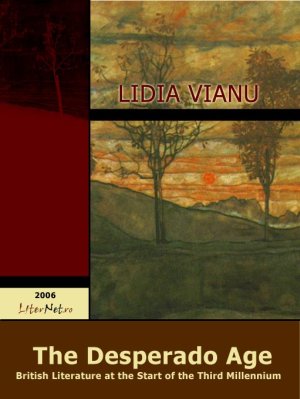British literature at the start of the third millennium
Delia Oprea
Desperado is an unusual term for postmodern literature. Lidia Vianu, professor of contemporary British literature at the English Department of Bucharest University is using its violent connotations to say that nowadays literature is not exactly an oasis of peace. It is a struggle, gun in hand, for new boundaries. A struggle which challenges the past more than anything else, which reshapes this past according to yet unknown rules. Actually, what the author of this theory concerning literature since the end of Modernism says is that we are vastly ignorant of what is going on. The only criterion that ought to make us point at a work as Desperado is the sense of confusion it stirs up.We are ill at ease, shocked, bewildered. We feel inadequate, we are not up to the mark with these writers. Are they too smart for us? They are being very clever, no doubt, but the main mood of all recent literature is that we feel we are left out in the dark without a clue. We struggle to get in, to understand what we are reading. It takes a while for us - at least a hundred pages - to get into the game. Because this is what it all amounts to, a game.
Some writers play for fun, some for money - each with his own luck. This is the age of receipts for bestsellers. It is the time when people go to special courses to learn how to write, which actually means how to take us by surprise more effectively. The whole of literature is essentially a big surprise, a party ending in blinding fireworks. And, whether we like it or not (we may be pining for romanticism, realism or whatever - it will all be in vain), it is here to stay. Desperado is a word that will not go away easily. It is, in fact, a bit more than a word: with this book by Lidia Vianu, it becomes a theory.
January 2006
